Vatican says Pope didn’t mean to call homosexuality a mental illness
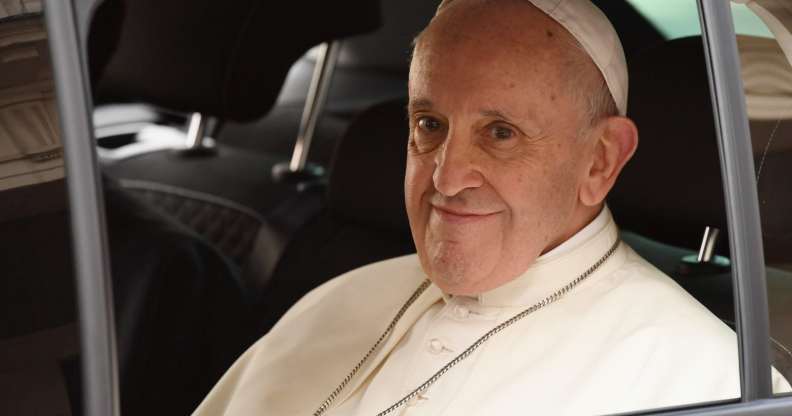
Pope Francis said gay children should go to a psychiatrist (Jeff J Mitchell/Getty)
The Vatican has corrected Pope Francis’s comments in which he said parents should take gay children to a psychiatrist.
The head of the Catholic Church made the comments while on the plane back from his fractious visit to Ireland.
While speaking to journalists, he was asked what he would say to a father whose son came out as gay.
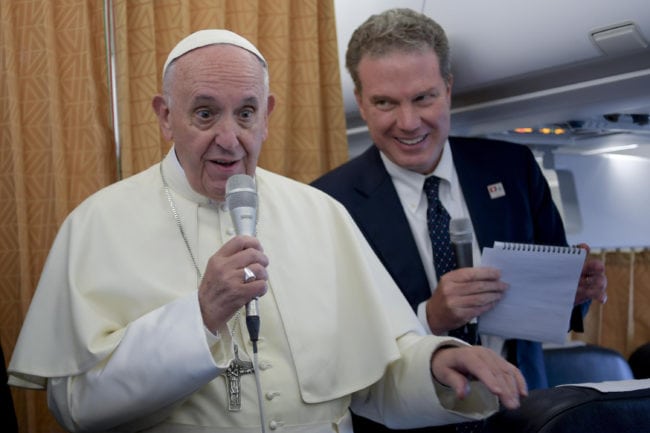
The Pope was asked what he would say to a father whose son came out as gay (CIRO FUSCO/AFP/Getty)
He responded: “I would say first of all to pray – then, to not condemn, to talk, to understand, to make space for the son or daughter.
“Then, it depends on the age… it is one thing if it’s manifested in children, there are many things one can do with a psychiatrist.”
He added: “To ignore a son or daughter with homosexual tendencies [shows] a lack of fatherhood or motherhood.”
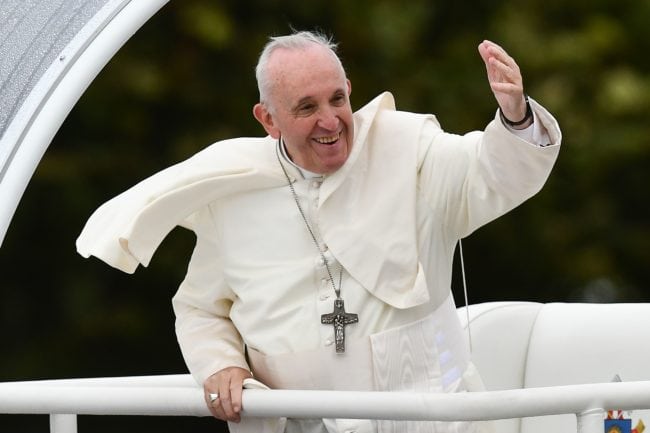
“There are many things one can do with a psychiatrist” (BEN STANSALL/AFP/Getty)
The Vatican has now removed the pontiff’s reference to psychiatry from its account of the interview, according to AFP.
A spokeswoman said: “When the Pope referred to ‘psychiatry’, it is clear that he was doing so to highlight an example of ‘things that can be done.’
“But with that word he didn’t mean to say that (homosexuality) was a ‘mental illness.'”
The Oxford English Dictionary defines psychiatry as “the study and treatment of mental illness, emotional disturbance, and abnormal behaviour.”
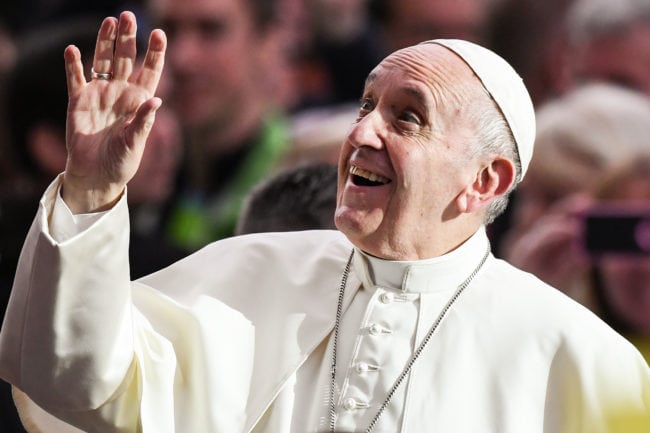
“With that word he didn’t mean to say that (homosexuality) was a ‘mental illness'” (Jeff J Mitchell/Getty)
Pope Francis has earned a reputation as a moderniser, but critics accuse him of failing to turn words into actions, given the Catholic Church’s poor record on LGBT+ rights across the globe.
Ireland’s Taoiseach (Prime Minister) Leo Varadkar called for acceptance of LGBT+ families during his visit, following reports that the World Meeting of Families attended by the Pope had blocked participation from Catholic LGBT+ groups and censored depictions of same-sex parents in events literature.
In his speech before the Pope, Varadkar emphasised that Ireland was no longer beholden to Catholic teachings.
He said: “The Ireland of the 21st Century is a very different place today than it was in the past. Ireland is increasingly diverse.
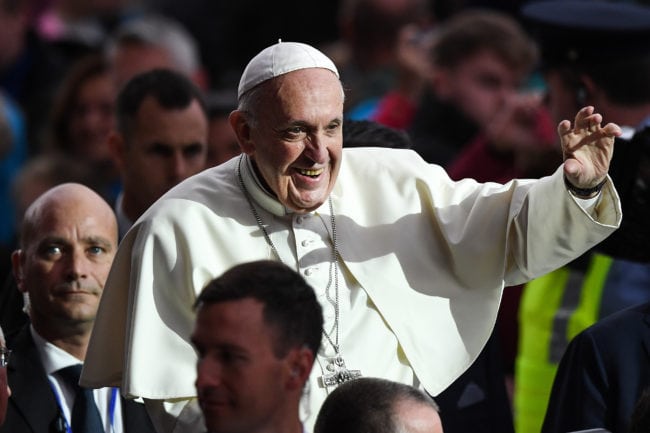
Pope Francis attends the festival of families at Croke Park (Jeff J Mitchell/Getty)
“One in six of us were not born here, and there are more and more people who adhere to other faiths, or who are comfortable in declaring that they subscribe to no organised religion.
“We have voted in our parliament and by referendum to modernise our laws – understanding that marriages do not always work, that women should make their own decisions, and that families come in many forms including those headed by a grandparent, lone parent or same-sex parents or parents who are divorced.
“Holy Father, I believe that the time has now come for us to build a new relationship between church and State in Ireland – a new covenant for the 21st Century. It is my hope that your visit marks the opening of a new chapter in the relationship between Ireland and the Catholic Church.
“Building on our intertwined history, and learning from our shared mistakes, it can be one in which religion is no longer at the centre of our society, but in which it still has an important place.”

